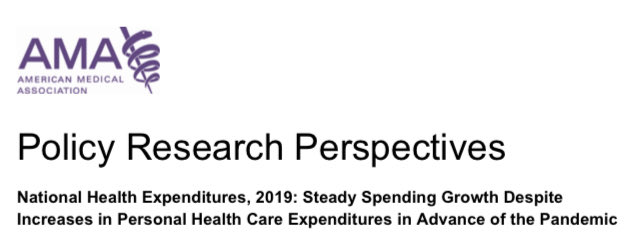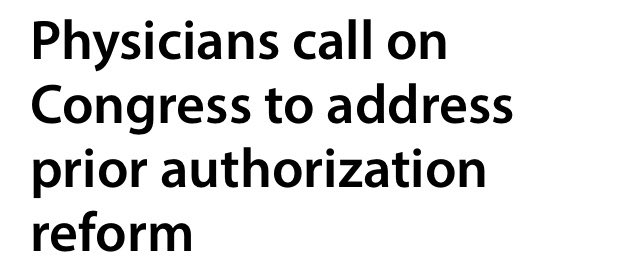
1/ New report from @AmerMedicalAssn provides:
•Detailed look at official US healthcare spending estimates through 2019 using data from @CMSGov
•Preliminary estimates of 2020 health spending from @Altarum
ama-assn.org/system/files/2…
•Detailed look at official US healthcare spending estimates through 2019 using data from @CMSGov
•Preliminary estimates of 2020 health spending from @Altarum
ama-assn.org/system/files/2…

2/ •Health spending was 17.7% of GDP in 2019 and increased by 4.6% to $3.8 trillion ($11,582 per capita).
•Spending in hospital care (6.2%) and prescription drugs (5.7%) grew faster than physician services (4.2%) in 2019.
•Spending in hospital care (6.2%) and prescription drugs (5.7%) grew faster than physician services (4.2%) in 2019.
3/ • In 2019, spending growth in #Medicare (6.7%) and out-of-pocket payments (4.6%) reached their highest rates in the last decade while private #healthinsurance (3.7%) and #Medicaid (2.9%) were on a downswing.
4/ •. The federal government financed the largest share of health spending (29.0%) in 2019 as it has since 2015; households were the second largest financiers (28.4%).
5/ •. Preliminary estimates suggest an unprecedented ⬇️ in 2020 national health spending driven by ⬆️ in spending for most personal health expenditure categories (including a 7.0% decline in hospital care spending and 4.2% decline in #physician and clinical services spending).
• • •
Missing some Tweet in this thread? You can try to
force a refresh







